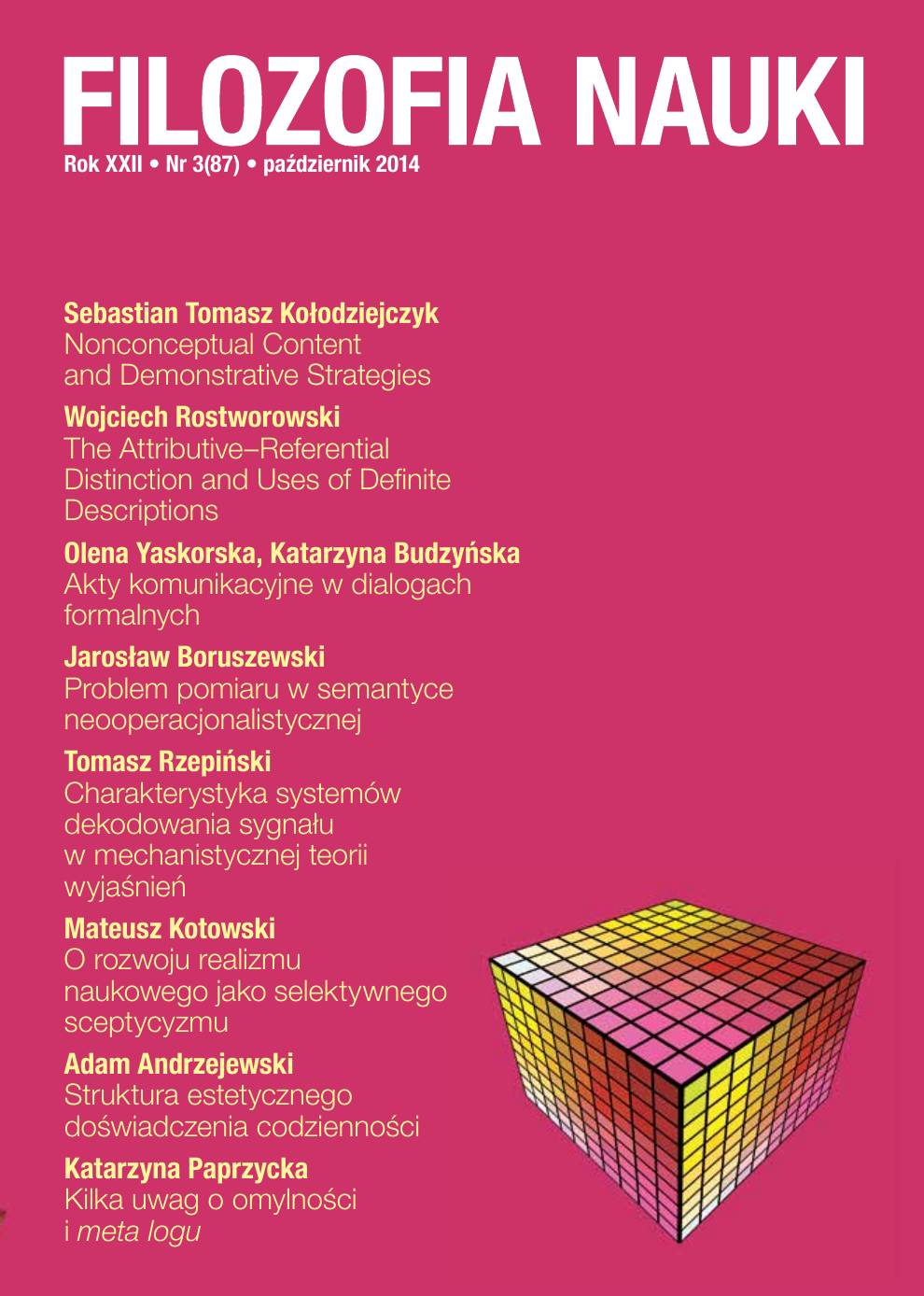Problem pomiaru w semantyce neooperacjonalistycznej
Słowa kluczowe:
semantics, measurement, neooperationalism, which-questions, realismAbstrakt
The aim of the article is to elaborate on the project of Jan M. Żytkow’s neooperationalist semantics. The basic idea of neooperationalism is to interpret em-pirical terms by coherent sets of operational procedures. Żytkow formulated a definition of coherence of a set of procedures for procedures of ?A type. Such procedures take the form of whether-questions and represent diagnostic procedures. Żytkow applied his definition of coherence also to the measurement procedures, but he did not introduce their formal representation in the language of interpretation. The author of the article, following Żytkow’s suggestion, has introduced representation of measurement procedures by means of which-questions. Such an attempt requires extending the lexicon of language of interpretation and introducing a new type of procedure — ? type procedure. Introducing which-questions involves a significant problem as to whether the uniqueness assumption of these questions is satisfied. Depending on whether this assumption is satisfied or not, we obtain two different accounts of measurement which correspond to opposite positions in the realism—antirealism controversy.Pobrania
Opublikowane
2014-09-01
Jak cytować
Boruszewski, J. (2014). Problem pomiaru w semantyce neooperacjonalistycznej. Filozofia Nauki, 22(3), 67–80. Pobrano z https://fn.uw.edu.pl/index.php/fn/article/view/765
Numer
Dział
Artykuły















 Filozofia Nauki | ISSN 1230-6894 | e-ISSN 2657-5868
Filozofia Nauki | ISSN 1230-6894 | e-ISSN 2657-5868